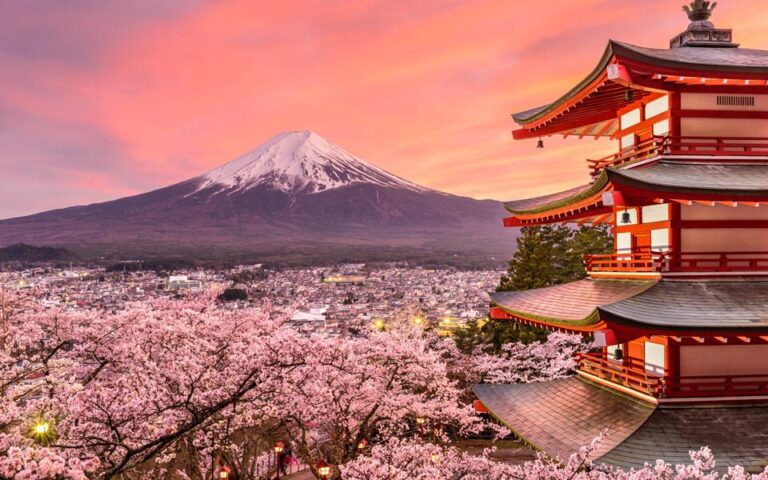The Japanese government has formally requested OpenAI to obtain permission before utilizing certain content, amid growing concerns over copyright issues linked to the recently released artificial intelligence model, Sora 2. The move highlights mounting tensions between technology developers and intellectual property holders in Japan, as authorities seek to navigate the complex legal landscape surrounding AI-generated content. This development, reported by The Japan Times, underscores the increasing scrutiny faced by AI companies operating within the country amid efforts to protect creators’ rights.
Japan’s Government Requests OpenAI to Obtain Authorization Over Sora 2 Copyright Issues
The Japanese government has formally approached OpenAI to address copyright concerns related to the AI’s use of the Sora 2 intellectual property. Officials emphasize the importance of securing authorization before further development or distribution involving copyrighted elements tied to Sora 2. This request reflects growing vigilance in Japan over the protection of creative works in the rapidly evolving landscape of artificial intelligence technologies.
Key points highlighted by the authorities include:
- Respecting Intellectual Property Rights: Ensuring AI-generated content complies with existing copyright laws.
- Transparency in AI Training Data: Encouraging clear disclosures about datasets used during AI training processes.
- Collaboration with Rights Holders: Establishing pathways for cooperation between AI developers and original content creators.
| Concern | Implication |
|---|---|
| Unauthorized Use | Potential legal action against OpenAI |
| Economic Impact | Losses to creators and publishers |
| Industry Standards | Need for updated AI copyright frameworks |
Detailed Examination of Sora 2’s Intellectual Property Challenges and Governmental Response
The release of Sora 2, an advanced AI-driven platform developed by OpenAI, has sparked significant intellectual property debates in Japan. Authorities have raised concerns over the platform’s use of copyrighted materials without explicit authorization, prompting calls for stricter regulatory oversight. Central to the dispute is whether Sora 2’s training datasets contain legally protected content sourced from Japanese creators, which could infringe on local copyright laws. Industry experts emphasize that the rapid deployment of such AI tools challenges traditional copyright frameworks, creating a gray area that complicates enforcement efforts.
In response, Japan’s government has formally requested OpenAI to seek prior permission before further distributing or modifying the Sora 2 system within its jurisdiction. The Ministry of Culture outlined a series of key demands to ensure compliance and protect domestic intellectual property rights. These include:
- Transparency in data sourcing and AI training methods.
- Implementation of robust filtering mechanisms to exclude unauthorized content.
- Establishment of a collaborative framework between OpenAI and Japanese rights holders.
| Key Issue | Government Request | Expected Outcome |
|---|---|---|
| Unauthorized Use of Copyrighted Content | Seek prior permission & disclose datasets | Enhanced IP protection |
| AI Model Transparency | Detailed reporting & oversight | Greater accountability |
| Collaboration Framework | Regular communication with creators | Mutual trust & legal clarity |
This measured yet firm approach signals Japan’s commitment to balancing innovation with intellectual property safeguards, setting a precedent for global AI governance standards.
Experts Advise Strengthening Compliance Measures for AI Companies Operating in Japan
Industry experts are urging AI companies operating within Japan to bolster their regulatory frameworks in response to the recent governmental scrutiny surrounding copyright issues linked to the Sora 2 project. As OpenAI faces calls to obtain official permissions, specialists emphasize the importance of proactive compliance strategies that align with Japan’s stringent intellectual property laws. These measures will not only help mitigate legal risks but also foster trust between AI innovators and local stakeholders.
Key recommendations from compliance advisors include:
- Enhanced due diligence on content sources and licensing agreements
- Regular legal audits to ensure ongoing adherence to evolving regulations
- Transparent communication with government bodies regarding data use and model training
- Implementation of robust internal governance frameworks dedicated to intellectual property protection
| Compliance Aspect | Action Item | Expected Outcome |
|---|---|---|
| Licensing | Verify all copyrighted material before training | Reduced infringement risks |
| Governance | Create a dedicated compliance task force | Faster response to legal changes |
| Transparency | Regular public disclosures on data usage | Improved public trust |
To Conclude
As the dialogue between Japan’s government and OpenAI unfolds, the outcome of this request to seek permission amid copyright concerns surrounding the use of Sora 2 underscores the growing complexities at the intersection of artificial intelligence and intellectual property rights. Stakeholders across the technology and creative sectors will undoubtedly be watching closely, as the resolution may set important precedents for AI development and regulatory approaches in Japan and beyond.




